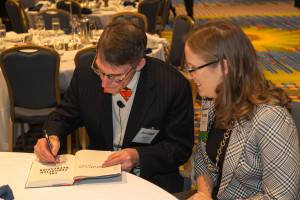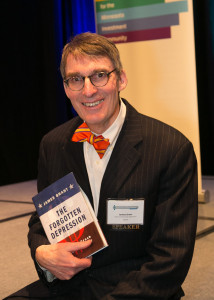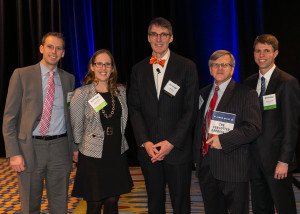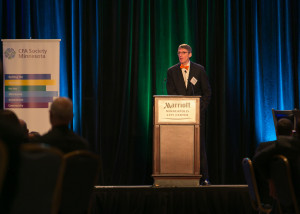By Tom Halloin, CFA Society Minnesota Intern
Central banks are starting to diverge in their monetary policies. Marvin Loh, a Managing Director at BNY Mellon Global Markets and the firm’s senior fixed income market strategist, spoke with CFA society members about potential consequences of diverging monetary policy between central banks. Interest rates, for instance, have collapsed worldwide since the financial crisis in 2007, with some countries such as Germany realizing near-zero or negative yields on bonds out to seven years. While the Federal Reserve of the United States has stopped purchasing securities through Quantitative Easing, European and Japanese central banks continue their own quantitative easing programs in order to stimulate their economies. As a result, the best currency trade in recent months has been to buy the dollar and short the euro.
The diverging monetary policies also extend to the Federal Reserve’s decision whether to raise the Federal Funds rate. Many investors are anticipating the Federal Reserve will increase the Federal Funds rate as early as this June. While the consensus among economists is that inflation will remain low for the foreseeable future, the Federal Reserve wants to mitigate the creation of asset bubbles as a result of a prolonged period of near-zero interest rates. There is less consensus, however, as to when the Federal Reserve will start to raise rates and how quickly rates will increase in the next two years. This lack of a consensus is an issue because markets can react violently to any slight change in monetary policy. With diverging policies between central banks internationally and diverging expectations on interest rate changes in the United States, expect volatility throughout the fixed income world in the near future.










